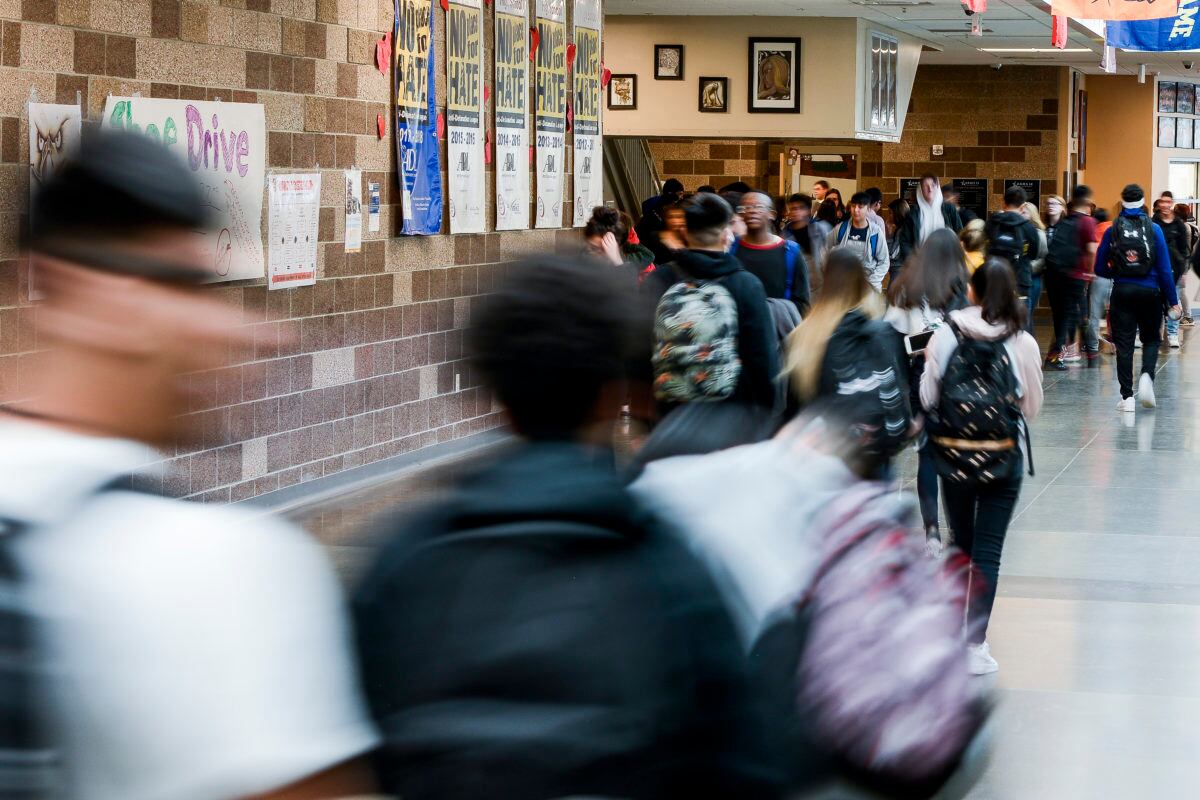Rejecting recommendations to reorganize the troubled Adams 14 school district or close schools, the Colorado Board of Education on Thursday instead indicated it will likely grant the district some autonomy but will require partial outside management.
Still, the State Board left open the options of school closures or district reorganization if the district fails to present a high-quality plan in about a month for retaining its authority to manage itself. But community support and the district’s new leadership, along with a lack of multiple options, persuaded some State Board members to reject an outside panel’s advice and instead give the district another chance to manage itself.
The State Board will consider partial outside management of Adams 14, as the district has requested, but wants clearly defined roles and responsibilities of each party, to try to avoid the power struggles that emerged between the district and its previous management company.
Adams 14 Superintendent Karla Loria said after the hearing that she was happy, excited, and emotional, and she agreed with the State Board’s requests for clearly outlined roles in a partial management plan.
“I think it’s very wise on behalf of the State Board to ask for those details — what they’re going to be over, in what authority,” Loria said. “What I can tell you is that they will not be over finances — that will remain at the board level.”
Initially, the State Board discussed requiring the district to continue under full external management. In 2018 the district became the first one the state ordered to hand over all authority to an external manager. But this time concerns about a lack of qualified or interested management groups pushed State Board members to consider a partial management plan.
Adams 14 now must submit that plan before the board’s May 11 meeting, in time for education department to review it and to evaluate the manager that the district selects.
Separately, the board requested the district come up with a complete plan for quasi-autonomy for Central Elementary, which is under separate scrutiny for low performance. The State Board requested a complete plan for what’s known as innovation status, including proof that a majority of the school’s staff have voted to approve the plan.
The district must submit Central’s plan for state staff review before the board’s June meeting.
“We are up to the challenge,” Loria said. “We will deliver. It is aggressive but it is doable. We will make it work.”
Adams 14 school board President Ramona Lewis said she didn’t expect Thursday’s outcome, and now feels like the state is willing to listen to the Adams 14 community.
She said the timeline is aggressive, but “our kids need aggressive. We’ve recognized that we really need to make a push and to make sure our kids get what they need.”
State Board member Lisa Escarcega cast the sole vote against the request for Central, citing concern that having a partial manager plus many consultants at the school as part of its other plans would become a disaster.
State Board member Karla Esser asked the district also to examine the condition of Central’s building and plan to address those facilities challenges too.
The State Board also considered scheduling a separate hearing for Adams City High School, which would require a new state review panel to go into the school, but given that school is over in about a month, said it would not be possible. A review panel for the district had recommended closing Adams City High School for persistent low performance. State Board member Steve Durham said that would be “impractical and damaging to children.”
The board instead asked the district to come up with a robust plan for improvement of the high school as part of the district’s plan.
Leaders of Adams 14, which serves about 6,000 students in working-class suburbs north of Denver, spent much of their time before the State Board Thursday describing the demographics of their district, which includes a majority of students living in poverty, and a high proportion of students who are classified as English learners.
Low achievement has placed the district on the state’s watchlist since 2010. Previous improvement plans have failed, and the latest state-ordered plan fell apart after Adams 14 parted ways with its external manager earlier this year.
District leaders called the state’s accountability process racist, and suggested the State Board’s measures were punitive. A lawyer for the district said he was aiming to create a record so that courts could review any negative action the State Board takes against the district. District lawyers also question the legality of the original order to relinquish its self-management.
State Board members disputed the district’s claims. Most also said they felt more confidence in current district leaders and in Superintendent Karla Loria than in previous administrations.
When asked why she hasn’t yet developed a complete plan for turning the district around, Loria said she would not introduce a plan from the top down without involving the community.
When one State Board member asked how the community could heal after years of turmoil, Loria said the answer was in listening to them.
“That’s why I continue saying the plan that I have, the vision that I bring to the district, is to listen to them,” Loria said speaking of the community. “They want to be part of the solution. They want to be part of the development of the plan. I can come top down with a plan, but I won’t.”
The State Board considered hundreds of pages of public comment submitted in letters and surveys. Among those that addressed external management, 45 supported some version of management, while 42 opposed it. Messages supporting or opposing local district leadership were similarly mixed, according to Education Department staff.
Messages addressing school closure were much more likely to say the schools should remain open, with just seven comments favoring closure. None in the case of Central Elementary.
Among those who submitted public comment, Colorado Gov. Jared Polis expressed support for “transformational change” in the district, and offered state dollars to support improvement plans.
“As governor I would seek to use a portion of federal custodial funds I have at my disposal to work in coordination with the Colorado Department of Education to facilitate successful transformational change in Adams 14,” Polis wrote.
He didn’t mention how much the state would provide, but did speak of a $2 million RISE grant from the state that is helping the high school to provide more career pathways, and hinted at a larger investment that “could have an even greater impact in promoting elementary, middle, and high school transformation.”
Yesenia Robles is a reporter for Chalkbeat Colorado covering K-12 school districts and multilingual education. Contact Yesenia at yrobles@chalkbeat.org.








